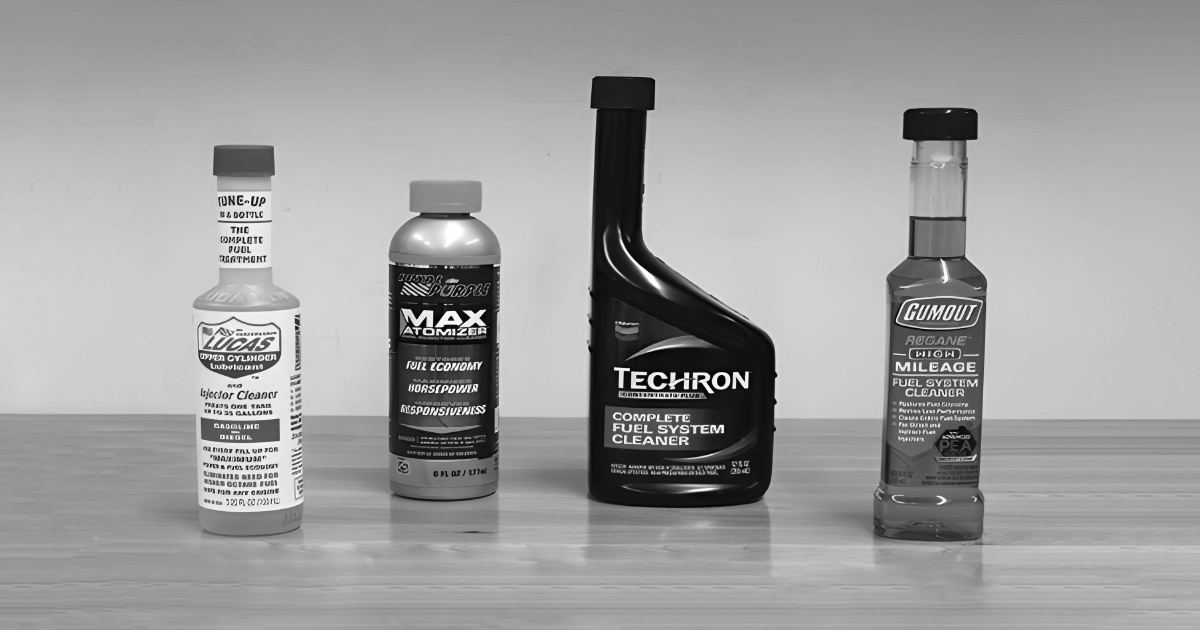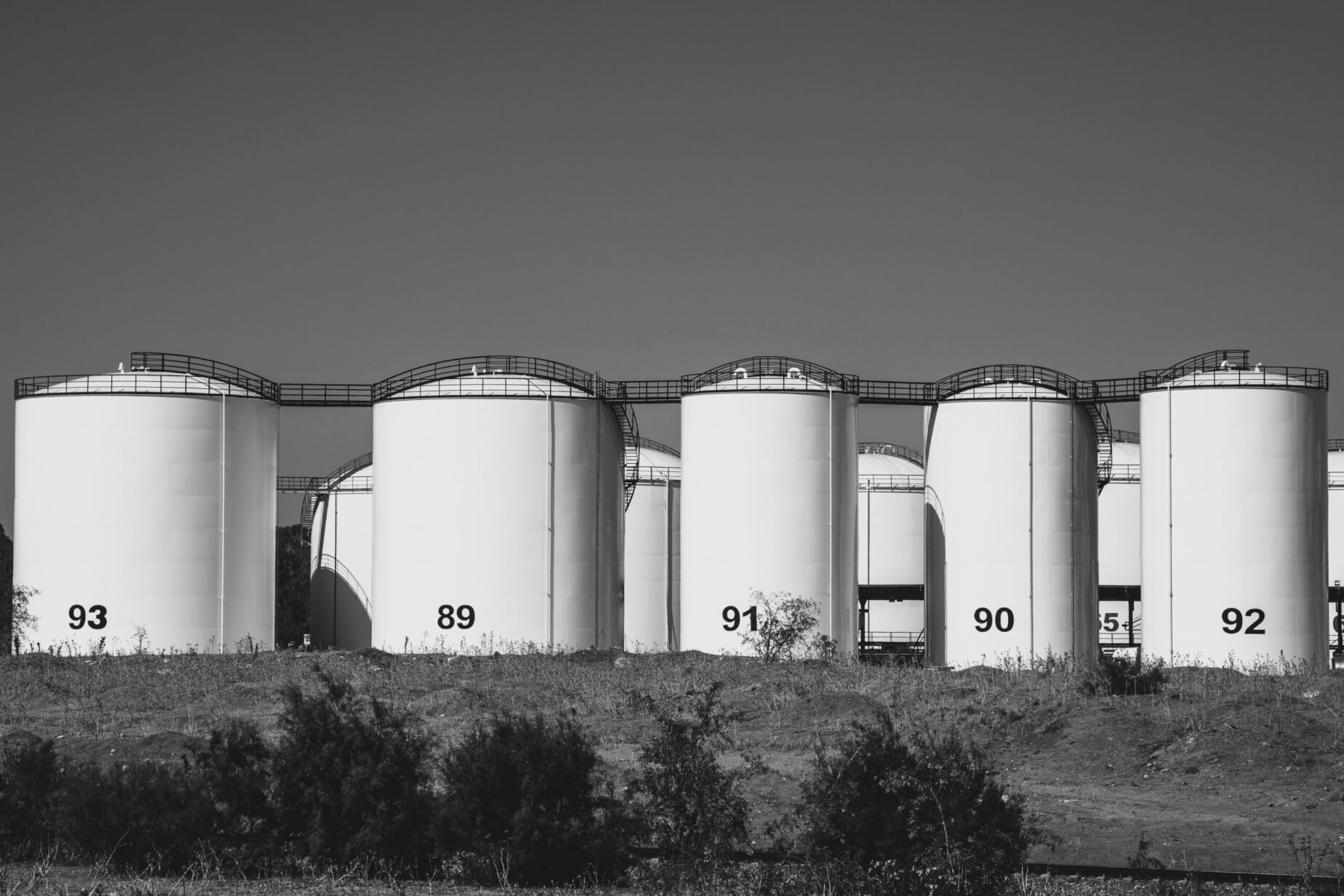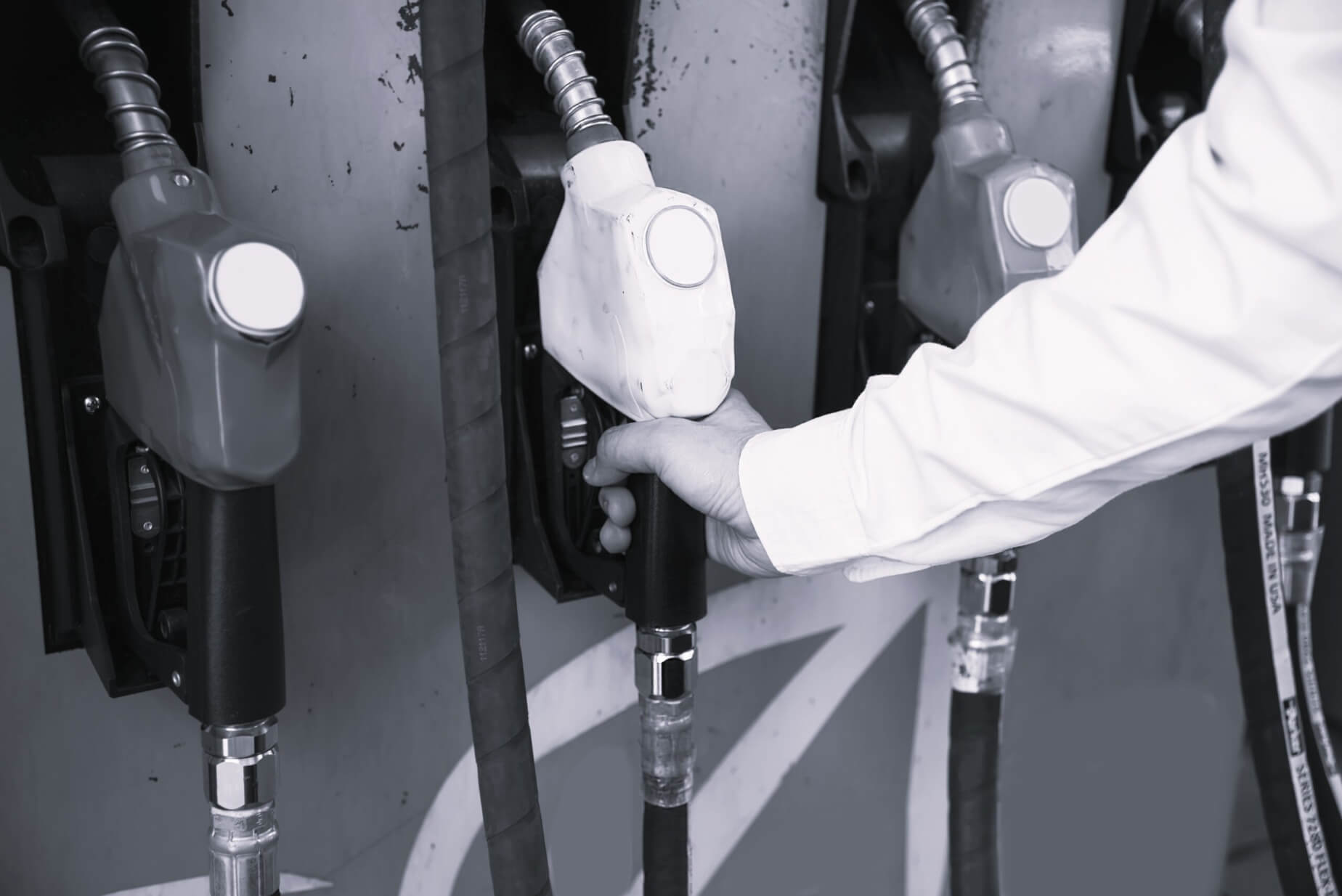Did you ever experience rough idling or perhaps an engine misfire? Some of these symptoms could be actually caused by dirty fuel injectors which not only reduce your fuel consumption but also tamper with your car’s performance. Hence fuel injectors must be clean if you want optimum engine performance and for every dollar’s worth of fuel to be consumed.
But is fuel injector cleaner worth it? Yes. It is. In fact, a study shows that fuel injector cleaners improve gasoline quality and reduce emissions. But, you might wonder, “How much fuel injector cleaner to use for maximum impact, what are its types, and what is the correct application?” Find out the answers to these queries below!
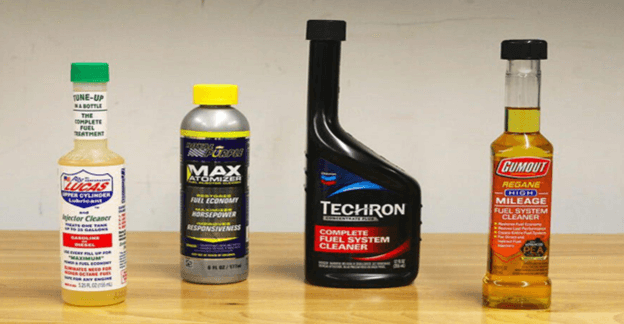
What Is a Fuel Injector Cleaner?
A fuel injector cleaner is a chemical additive employed for cleaning and preserving a fuel injection system in any given engine. In the long run, your engine performance can suffer due to the accumulation of carbon on fuel injectors and the combustion chamber.
To remove these deposits, fuel injector cleaners, which contain typically polyetheramine (PEA) or polybutene amine (PBA) are used. But the question here is how does fuel injector cleaner work really? The cleaner combines with fuel in the fuel tank and flows throughout the system to dissolve the deposits and also to provide lubrication to the associated parts.
By cleaning the injectors it provides proper fuel dispersion, fuel economy, and engine torque. Its daily usage will also eliminate future accumulation and increase the fuel system’s lifespan.
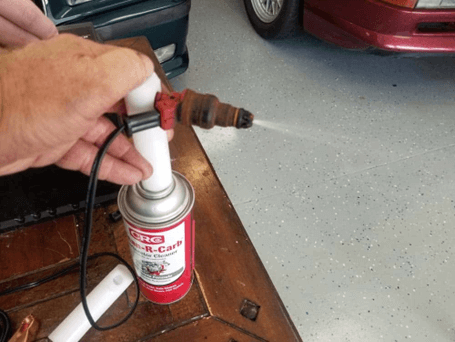
Variations of Fuel Injector Cleaners
There are many variations of fuel injector cleaners, not all of which are the same, nonetheless, they work in the same manner. Cleaners that are PEA-based, remove carbon from injectors and combustion chambers hence improving fuel economy and producing less emissions in both petrol and diesel engines. Whereas alcohol solutions containing isopropyl alcohol, or ethanol, remove moisture. They prevent the fuel system from freezing but penetrate the surface thinly and are not as successful on tough stains.
Some cleaners also contain detergents to improve combustion and reduce engine knocking. However, the right cleaner or method for cleaning depends on your fuel injection system and how stubborn the accumulation is to remove:
Difference Between Direct Fuel Injection and Port Fuel Injection System
The Diesel Fuel Injection system pumps fuel into the combustion chamber to meet the engine requirements for power, speed, and fuel consumption. However, this process results in the formation of carbon deposits on the intake valves which often have to be cleaned. PEA-based cleaners are ideal for DFI systems to remove tough deposits.
On the other hand, Port Fuel Injection (PFI) sprays fuel directly into the intake manifold to maintain cleaner intake valves. PFI systems require less frequent cleaning but can still benefit from injector cleaners.
Liquid Additives
Liquid fuel injector cleaners are introduced directly into the fuel tank and may have PEA and PBA to dissolve carbon, gum, and varnish. They also carry solvents for dissolving solvents, anti-corrosive agents so as to avoid rusting, and lubricants for reducing friction while the engine is running.
Some cleaners include alcohol to prevent freezing and remove moisture, and antioxidants for long fuel life. For best results, add the cleaner to an almost empty tank, then fill it with fuel. One 12-16-ounce bottle typically treats 10-15 gallons.
Spray-on Cleaners
Spray-on cleaners are another option for washing fuel injectors and engine parts. They remove carbon accumulation from target areas like intake valves and the combustion chamber to improve engine performance.
However, they may not get to the other portions of the fuel system like the liquid additives do and demand more effort in their application. Spray-on cleaners are best used for extra cleaning, especially when significant deposits are suspected or when performance issues occur.
Professional Cleaning Services
Professional cleaning services know how to clean fuel injectors and provide a thorough method for cleaning the entire fuel system. These services use advanced tools like ultrasonic and pressurized cleaning and can remove tough deposits that regular fuel injector cleaners may miss.
In addition, professional cleaning aids in bringing back the performance of injectors. It increases fuel efficiency and decreases emission levels, especially for vehicles that are old or have huge performance troubles.
The Signs That Tell You It’s Time to Use a Fuel Injector Cleaner
You probably need a fuel injector cleaner if you are experiencing the following:
- Poor Fuel Economy – When the injectors are dirty, they force your car to use more fuel than necessary and cause inefficient combustion.
- Difficulty Starting – Whenever it takes some time to start the engines, or the automobile needs to be cranked more than once, then it might have clogged injectors.
- Engine Stalling – Should the engine stall especially when idle or at slow speed, it could be due to inconsistent fuel delivery from dirty injectors.
- Rough Idle – Fluctuating engine RPMs, while your vehicle is stationary, can mean the injectors are not providing an even stream of fuel.
- Loss of Power – Your car’s engine will not be as fuel efficient as it should be if the injector is not functioning as it should.
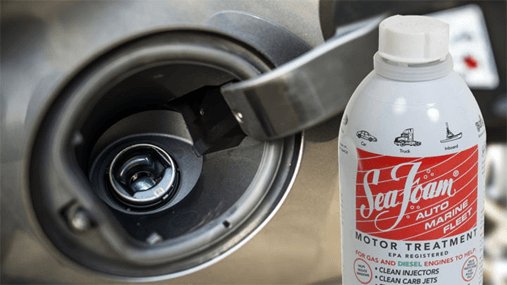
How Much of Fuel Injector Cleaner to Use?
One must always remember to use a fuel injector cleaner at the recommended dosage as recommended by your vehicle’s manufacturer. Most bottles are designed to treat a full tank (12-16 ounces for 10-15 gallons). But adjust the dosage based on your tank size and always stay within guidelines.
Remember using too much cleaner can damage the fuel system, causing corrosion or clogging components, while using too little may not clean deposits effectively. Diesel engines may require specific cleaners, and severe buildup might call for more frequent use, but still within recommended limits. Here’s how to use fuel injector cleaner with step-by-step instructions:
- First, follow the label, usually one bottle for a full tank.
- You may also want to know “Do you put fuel injector cleaner in before or after the gas?” Well, add fuel injector cleaner before refueling. Pouring it into an empty or nearly empty tank ascertains it mixes well with the fuel for effective cleaning.
- Next, fill the tank after adding the cleaner to ensure even distribution.
- Then, use the full tank to let the cleaner work through the system.
How Much is Too Much of Fuel Injector Cleaner?
We said this before, flooding your car with fuel injector cleaner is actually bad for your vehicle. This is because overusing the cleaner might dilute the engine oil, impair its capacity to protect and lubricate parts hence resulting in more wear and tear.
The cleaner is also capable of corroding the rubber seals and gaskets in the fuel system thus allowing for leakage. In addition, overuse of the cleaner or using the wrong type for your fuel system can also impact your fuel pump in the same way Either it will decrease its efficiency or will lead to its complete failure.
When is the Best Time to Use a Fuel Injector Cleaner?
If you experience poor fuel economy with your vehicle, or hard starting, stalling, or rough idle, then it is high time to clean the injector. The general advice is to use a cleaner every 3000 miles or when changing oil to stop accumulation.
High-mileage vehicles (over 75,000 miles) may benefit from more frequent use due to increased carbon deposits. However, if you often use lower-quality fuel, consider using the cleaner every 1,000 to 3,000 miles to counteract residue buildup.
Combine with Fuel Logic’s High-Quality Fuel
You need to understand that only the best gasoline can maintain your fuel system’s performance and cleanliness. Therefore, use a premium fuel injector cleaner together with Fuel Logic’s high-quality fuel. This combo can help you avoid the build-up of carbon deposits on the fuel injectors, intake valves, and the combustion chamber.
Moreover, the fuel provided by Fuel Logic also increases acceleration, decreases emissions, and provides better and smooth running of the vehicle. Besides, it has been found to cut long-term expenses since it would require less maintenance. To maintain your fuel system, follow the tips beneath:
- Replace Oil Often – This is to keep the engine coated so it can act as a barrier against sludge and protect components from wear.
- Replace Fuel Filters – You should replace fuel filters every 15,000 to 30,000 miles traveled. This is to ascertain proper fuel circulation is achieved and to safeguard injectors against sediment accumulation.
- Use Fuel Additives – In addition to fuel injector cleaners, it is advisable to use fuel additives where there is likely to be long idle periods as they offer fuel stability and protection from corrosion,
- Choose Quality Fuel – Use fuel from trusted suppliers to keep your system clean and ensure efficient engine performance.
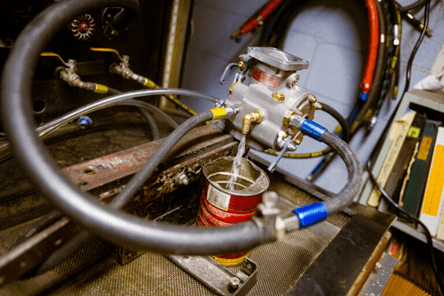
Key Takeaways
Clean fuel injectors make your engine run better, allow your vehicle to get better fuel economy, and eliminate excessive emissions. There are a wide variety of fuel injector cleaners that break down carbon.
However, PEA-based cleaners are more effective on the DFI engines, alcohol-based for removing moisture, and spray-on cleaners for selective cleaning. Some of the symptoms of dirty injectors include poor fuel economy, hard start, stalling, or rough idle. Apply cleaners correctly. Pour into the tank when the tank is empty before filling the car and then, drive to spread it over the engine.
Furthermore, use a cleaner every 3,000 miles or with oil changes. Individuals who travel many miles or persons using low-quality fuel may require its use more often. A single 12–16 oz bottle treats 10-15 gallons. But, always consider the required vehicle and the product.
FAQs
1. Can I use fuel injector cleaner on a full tank?
Yes. But it is advisable to add a fuel injector cleaner to your car’s tank when the tank is almost empty. This ascertains the cleaner blends well with fuel hence making it more efficient in cleaning the injectors as well as the combustion chamber.
2. What’s the duration of a fuel injector cleaner to work?
Fuel injector cleaners begin their job as soon as they have been poured in the fuel tank but works best when the tank is depleted entirely. This ascertains the cleaner fully circulates through the injectors and combustion chamber, removing deposits effectively.
3. What are the best fuel injector cleaner brands?
The best-ranked fuel injector cleaners are Berryman, Chevron, Amsoil, and Air-Tec due to their ability to clean the injectors and improve the operation of the automobiles’ engines. We also suggest choosing products with ingredients like polyetheramine (PEA) for removing carbon deposits.
4. Do you pour the whole bottle of fuel injector cleaner?
Yes. Usually, an entire bottle of fuel injector cleaner is consumed in full. This is because most cleaners are formulated (12-16 ounces) to be used on a single tank with 10-15 gallons of gasoline.
5. Do I have to use fuel injector cleaner every time I fill up my car?
No. You don’t have to use a fuel injector cleaner whenever you are filling up your automobile’s gas tank. But only using it every few thousand miles or during oil changes helps maintain a clean fuel system. However, high-mileage cars or those using lower-quality fuel may benefit from more frequent use.
Use a Fuel Injector Cleaner With High-Quality Fuel By Fuel Logic
As knowing how much fuel injector cleaner to use is necessary for optimal performance of your fuel system, combining it with high-quality fuel is also a must. Trusted by leading businesses like Pepsi, Walmart, and TruTeam, Fuel Logic provides high-quality fuel and reliable diesel fuel delivery solutions tailored to your needs in any location you want.
Whether you manage a fleet of trucks, and trailers, or need onsite fuel, our mobile team offers custom solutions. Fuel Logic delivers clear or dyed diesel, gasoline, and DEF straight to your site, offering 24/7 on-demand service. So fill out the form on our site to order bulk fuel delivery or call us for a continuous diesel supply for your fleet!

